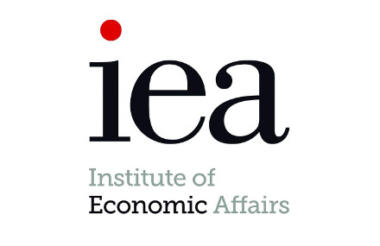The Charity Commission has said it has “no appropriate regulatory action” for it to take after looking into concerns about the Institute of Economic Affairs - the think tank which proposed restrictions on charities that get government grants campaigning with that money.
Andrew Purkis, a former Commission board member, complained to the regulator in March, arguing that the IEA did not appear to be carrying out charitable activity. Paula Sussex, chief executive of the Charity Commission, has now responded to say that the regulator has no grounds to take any action against IEA over its refusal to say who funds it.
The IEA’s reports were cited by Matt Hancock, then minister for the Cabinet Office, when he announced that charities in receipt of government grants would no longer be allowed to use that money to advocate.
During the summer the government ‘paused’ the introduction of the anti-advocacy clause, but is expected to return to the issue in the coming months.
The IEA has consistently refused to reveal the sources of its funding for the ‘sock puppet’ reports that proposed the policy and Purkis had argued that this contravened Commission principles. He also said that promoting a particular economic viewpoint should not be a charitable activity.
But the Commission has now said that it is acting within its charitable objects and that there is “no appropriate regulatory action for the Commission to take on this issue”.
Lack of transparency
In a letter dated 19 October, Sussex told Purkis that after a “continuing dialogue” with the IEA the Commission has no reason to escalate the complaint.
On transparency Sussex said: “Whilst the Commission commends to all charities that they should publicly acknowledge the source of their funding, there is no legal requirement to do so - unless it is from a trustee or related party and has conditions attached to it that influence how the charity proceeds.”
She also highlighted the ongoing consultation into the new SORP to determine what should be in the new framework to take effect in 2019 and said that one of the issues being discussed was whether charities should have to disclose who has funded them.
IEA’s three reasons for not disclosing
She said that the IEA had given three reasons for not disclosing the identity of its donors. They are:
- They would need permission from donors, which is unlikely to be forthcoming
- It regards donations as a private matter
- It is regularly attacked by people who disagree with it
Sussex said: “We have made our views known to IEA and will reiterate them when we send our closing letter. However, we have no grounds to insist on disclosure of donors and we do not consider that it would be appropriate for us to take regulatory action against the charity in respect of its decision not to identify the source of donations.”
Campaigning activity
Sussex said that the IEA was acting within its charitable objectives, in so far as it is an educational charity providing a particular learning perspective.
Sussex said that provided the perspective can properly be regarded as a legitimate aspect of learning in the subject matter, this may be acceptable, as would an approach to the subject from a free market economy perspective.
“There is also no legal rule that a charity of this kind (provided it is approaching its work within the rigours required of an educational charity) cannot be involved in subjects which are controversial in this sense,” she said.
She also told Purkis that the IEA was “very strongly of the view that it is independent of all political parties” and that it said it “neither engages in policy engineering, does not engage in campaigning nor does it accept government grants or accept commissioned research from government”.
Sussex also said that the IEA had told the Commission that it only carries out sponsored research from individuals, and that this “only goes as far as suggesting topics, not the contents of the paper or other research output”.
Response from Purkis
In a letter responding to the Commission Purkis said he was not satisfied with the Commission’s response and called for a wider investigation into whether educational think tanks should continue to be eligible for charitable status.
He said the Commission’s stance on transparency appeared “weakened” by its response.
The Commission has confirmed that it has received Purkis' letter, which it is assessing and "will respond in due course".
Purkis has written a piece in Civil Society’s Voices section outlining his argument.









